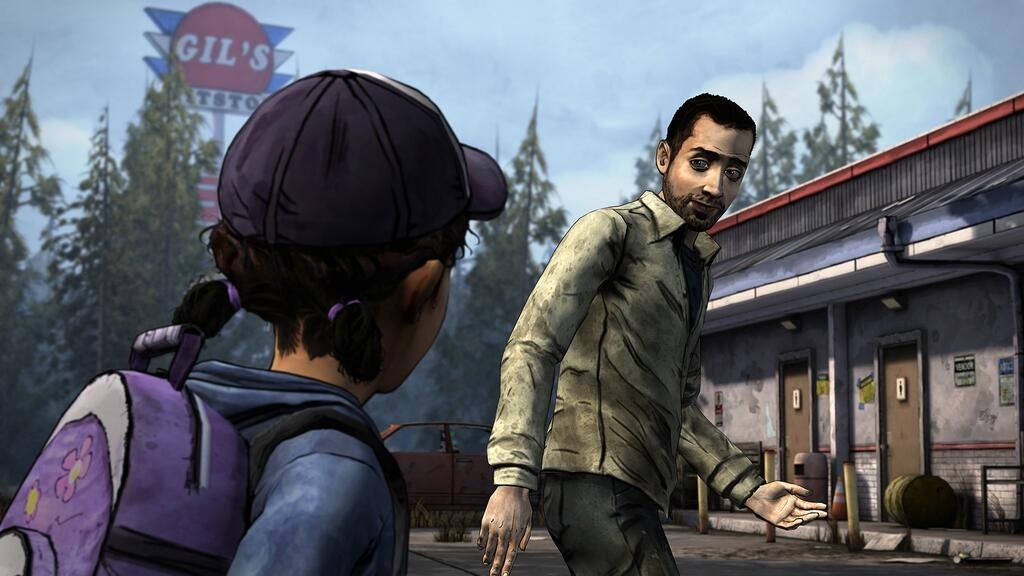
The state of videogames in the dying days of 2013: for the cost of a Starbucks latte and roughly 1/100th the cost of a PlayStation 4, you can buy a new game so good, so confident, so polished and so worthy it renders the idea of spending hundreds of dollars of your money on either of the new consoles almost, well, ridiculous. Whoever you are, you likely already own the device you need to play it and the skills you need to enjoy it. The only other thing you need, if you don't already love games, is an open mind.
I'm writing, of course, about the first episode in the new, second, series of The Walking Dead adventure game (available at first on iOS, PC, Xbox 360 and PlayStation 3). The inital season—five episodes of several hours each—was the game of the year for many people in 2012, which was surprising for several reasons. First, Telltale Games, the midsize Bay area studio that makes TWD, was known until that point as a journeyman outfit, good at making old-style adventure games for genre fans. Second, the games flew in the face of a lot of received wisdom about what makes games good. While beautiful, they are hardly technological showpieces—anathema to the "make it shinier!" ethos of big gaming. And while satisfying to play, they offer the player very little overt control, contra the "games shouldn't be movies" ethos of indie gaming. They didn't—they still don't—seem to fit into the narratives we have to talk about games.

So what made the first season so good? Well, quite simply, it invested players in a story to a degree that I think may be unprecedented in the medium. It followed a troubled but decent man named Lee as he protected and eventually grew to love a nine year-old girl named Clementine in the midst of a zombie apocalypse. Yes, the game took the hoariest of premises and made it feel urgent. How? It used those rare tools in modern gaming: skillful storytelling, masterful characterization, and just the right amount of emotional manipulation. Puzzle solving, branching conversations, and the occasional "TAP TO ESCAPE/DESTROY ZOMBIE" are the extent of the series' limited interactivity, but are still more than enough to deepen the player's investment beyond the level of television.
And yes, these games are orders of magnitude better than the AMC show that shares their name.
The two-hour first episode of season two is, if anything, more harrowing, more touching, and more gorgeous than anything in the older game. Last season already had a strong sense of place, but the new episode hauntingly evokes that pine tree Carolina span of the I-95 corridor, green and brown and cold. The pacing is relentless, the new characters complex, and the dialog feels truer than ever. This series is starting to do mood—mournful, afraid, but resilient—as well as any game on the market.

But the most important improvement comes from playing as Clementine, the little girl from the first game. If you've played those five episodes—and you should, before you start the new ones—you already have a strong attachment to the character. Inhabiting Clementine gives the game a new, at times nearly painful feeling of sadness and vulnerability. It's a masterstroke by Telltale, and not just from a narrative perspective. How refreshing is it, and how wonderful is it, to play a game like this not as some craggy faced Brolin or tastefully large-breasted Jolie, but as a scared little black girl?
I started playing the new season last night at midnight, with the idea that I'd play for twenty minutes before bed. What a joke! An hour an a half later, when my iPhone ran out of battery, there I was, lying in bed, a 29-year-old man too worried about the fate of a fictional little girl to fall asleep, while my Xbox One slept, on the shelf. This is the real deal: a game for adults, not gamers, a game to share, a game to evangelize about, a game to cherish.
